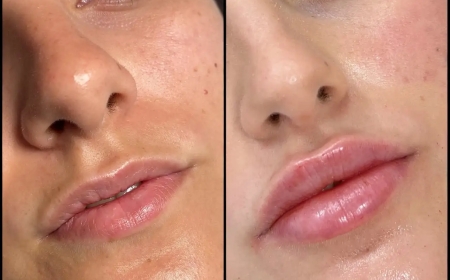Self-Care on a Budget: Free or Low-Cost Ways to Boost Your Mood
Self-care doesnt need to drain your wallet to lift your spirits. In a world where stress and anxiety can feel overwhelming, affordable self-care practices can make a big difference in your mental health. Research from theJournal of Positive Psychology shows that intentional, low-cost self-care activities reduce stress and enhance well-being. Whether youre juggling a tight budget or a packed schedule, these five free or low-cost strategies, each taking 10 minutes or less, will help you boost your mood and nurture your emotional health.
Why Budget-Friendly Self-Care Matters
Self-care is about prioritizing your mental and emotional wellness, but expensive retreats or therapy sessions arent always feasible. A Health Psychology study found that small, consistent self-care practices are just as effective for improving mood as pricier options. These accessible tools are designed to fit into any lifestyle, proving that caring for yourself can be simple, affordable, and impactful.
1. Mindful Walking Meditation
Walking mindfully can shift your mood without costing a cent. A Scientific Reports study shows that 10 minutes in nature reduces cortisol levels, promoting calm. Heres how to do it:
-
Step 1: Step outside or walk indoors for 510 minutes.
-
Step 2: Focus on the sensation of your feet touching the ground or the rhythm of your breath.
-
Step 3: Notice your surroundingstrees, sounds, or even the texture of your floorwithout judgment.
-
Step 4: If your mind wanders, gently return to your steps.
Try this during a lunch break or evening stroll. Its free, requires only comfortable shoes, and instantly refreshes your mind.
2. Gratitude Jar Practice
Gratitude rewires your brain for positivity, per Journal of Happiness Studies. This practice costs nothing but a few scraps of paper. Spend 5 minutes daily:
-
Step 1: Find a jar, cup, or any container (even a reused food jar works).
-
Step 2: Write one thing youre grateful for on a piece of paper, like a sunny day or a kind coworker.
-
Step 3: Fold it and add it to the jar.
-
Step 4: Once a week, spend 2 minutes reading a few notes to lift your mood.
This simple ritual builds a collection of positive moments, reminding you of lifes bright spots during tough times.
3. DIY Aromatherapy with Kitchen Items
Scents can soothe your nervous system, and you dont need fancy oils. A Journal of Alternative and Complementary Medicine study found that aromas like citrus reduce anxiety. Try this 3-minute practice:
-
Step 1: Grab a lemon, orange, or herbal tea bag (cost: under $1).
-
Step 2: Cut the fruit or steep the tea, then inhale the scent deeply for 1 minute.
-
Step 3: Pair with slow breathing (inhale for 4 seconds, exhale for 6) for 2 minutes.
-
Step 4: Notice how your body feelslighter or calmer.
This turns everyday items into a mini spa experience, perfect for a quick mood boost.
4. Five-Minute Stretch Session
Movement releases endorphins, boosting mood without a gym membership. A Frontiers in Psychology study shows that gentle stretching reduces stress in just 5 minutes. Heres how:
-
Step 1: Find a quiet space and set a 5-minute timer.
-
Step 2: Do neck rolls for 1 minute, feeling tension release.
-
Step 3: Stretch arms overhead for 1 minute, then lean side to side for 1 minute.
-
Step 4: Finish with a seated forward fold (reach toward your toes) for 2 minutes.
Free YouTube videos or apps like those on ReliefBuddy.com can guide you. This is ideal after a long day of sitting.
5. Audio Journaling
If writing feels daunting, try speaking your thoughts. A Clinical Psychology Review study shows that expressive activities reduce stress. Spend 5 minutes:
-
Step 1: Open a voice memo app on your phone (free on most devices).
-
Step 2: Talk about your day, feelings, or something youre grateful for.
-
Step 3: Save the recording for reflection or delete for privacy.
-
Step 4: End with a deep breath, noting how you feel.
This practice is perfect for those who find talking easier than writing, offering a free way to process emotions.
Building a Sustainable Practice
These strategies cost little to nothing and take just 510 minutes. Start with one, like a gratitude jar, and try it for a week to see how it feels. Use apps like those on ReliefBuddy.com to set reminders or access guided exercises. Consistency is keytie your practice to a daily habit, like after brushing your teeth, to make it stick. If one doesnt resonate, swap it for another. The goal is to find what lifts your mood without straining your budget or time.
Tips for Success
-
Start Small: Pick one practice to avoid overwhelm. A Behavioral Science study shows small habits are easier to maintain.
-
Track Progress: Use a free app or notebook to note how you feel after each session. This boosts motivation, per Health Psychology Review.
-
Be Flexible: If a practice feels off, try another. Self-care should feel nurturing, not forced.
-
Celebrate Wins: Acknowledge sticking to your routine, even for a few days. Positive reinforcement builds habits.
Final Thoughts
Self-care doesnt require moneyjust intention. These free or low-cost practices can brighten your mood and strengthen your mental health, no matter your circumstances. Start with one tomorrow, like a mindful walk or gratitude jar, and notice the shift in your energy. You deserve these moments of care, and theyre easier to achieve than you think.



































